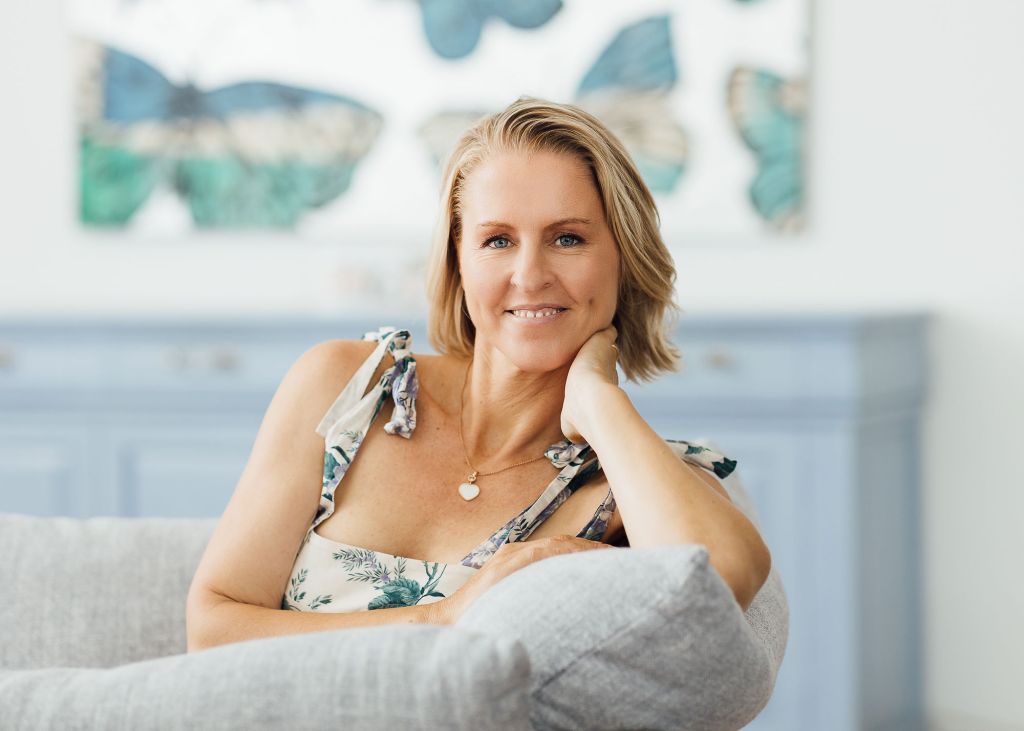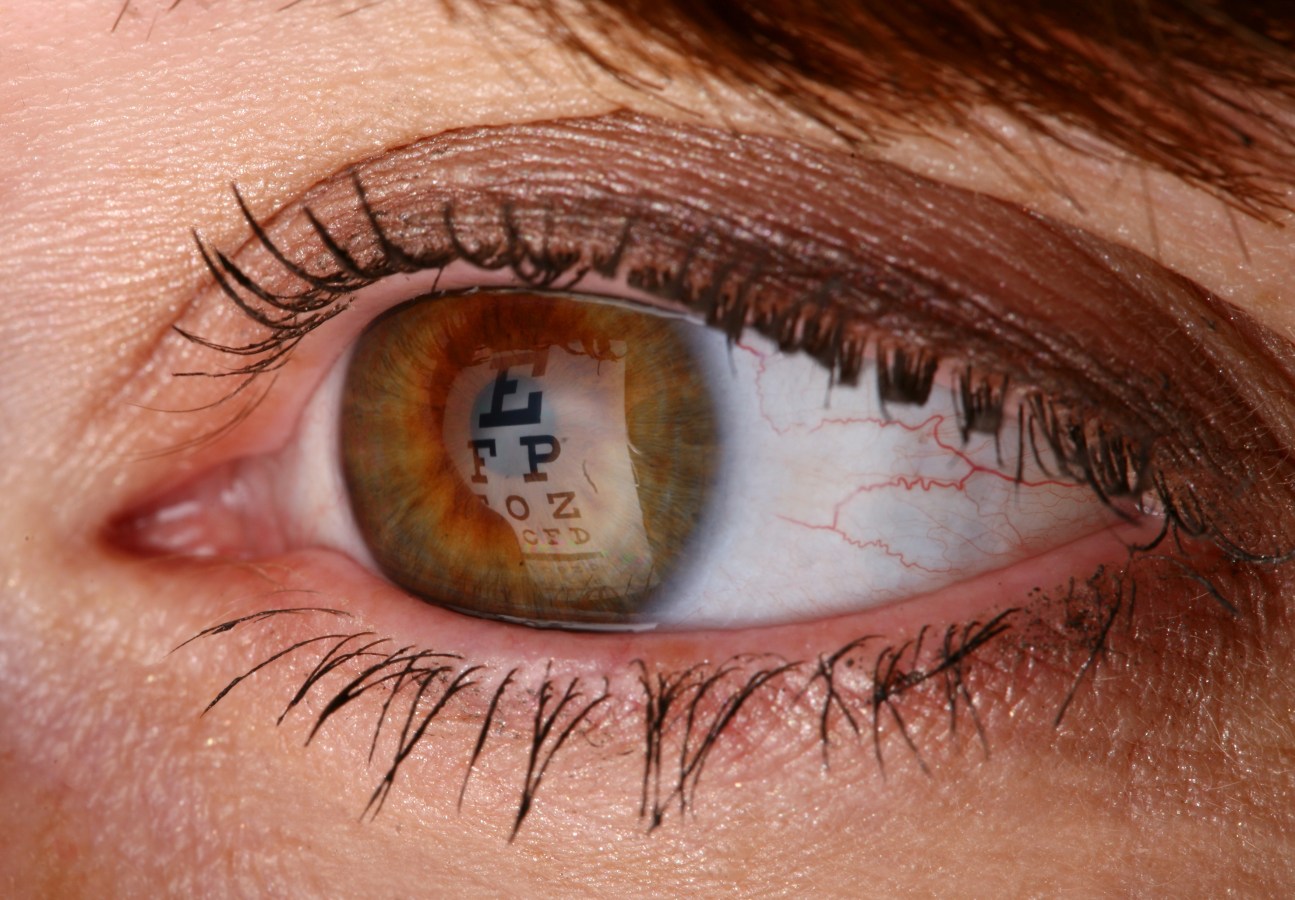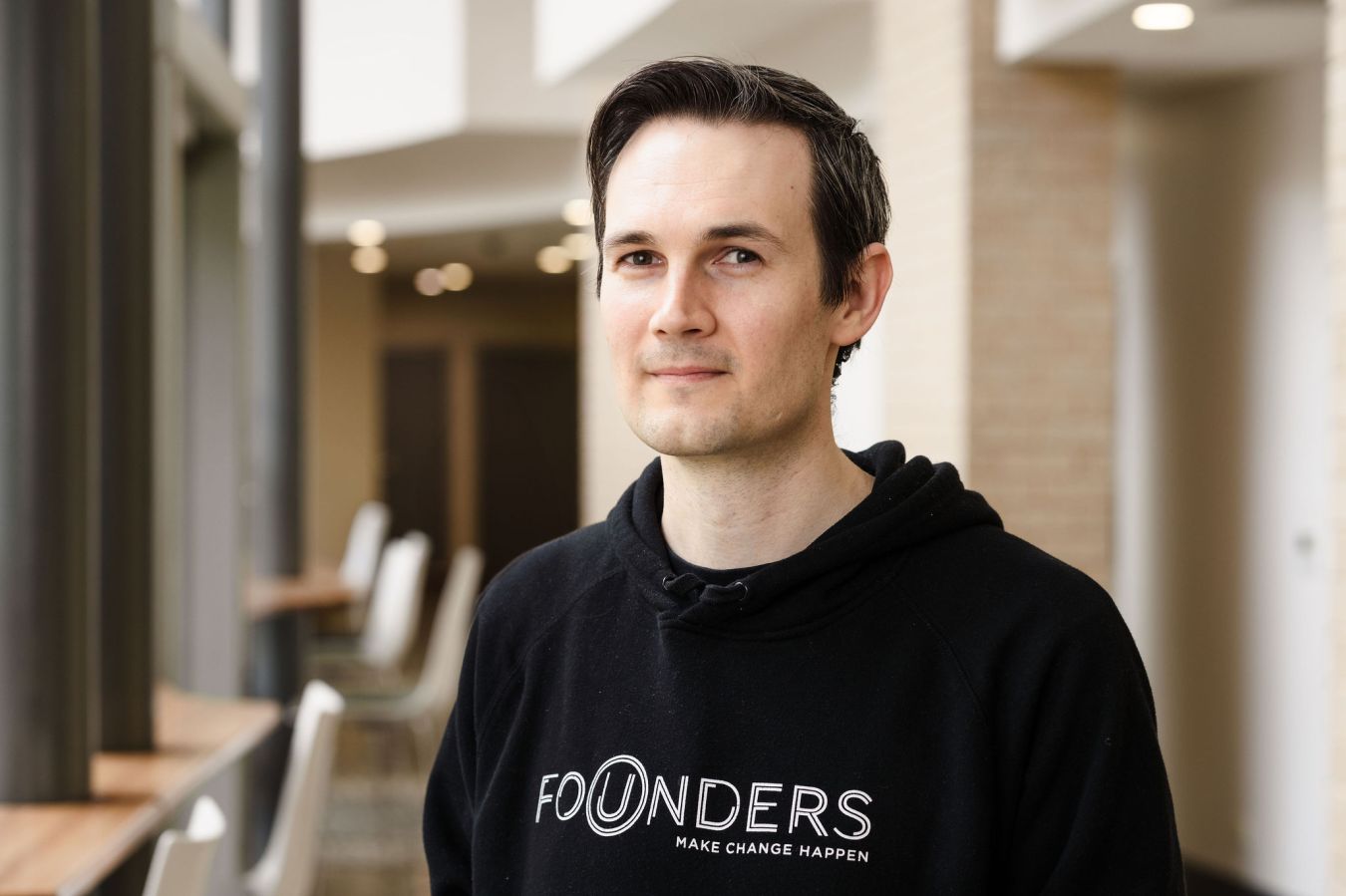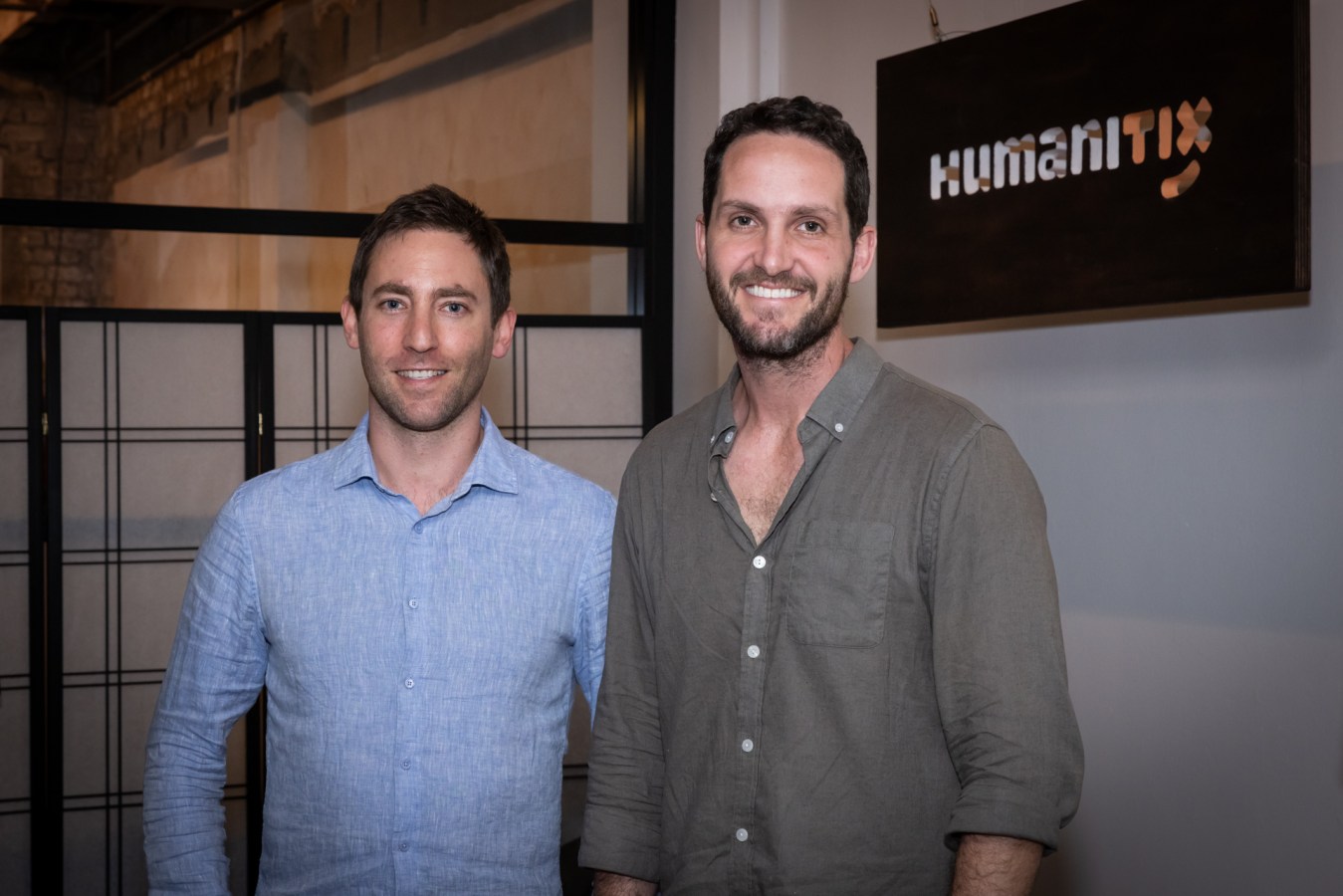Emily Hamilton launched her viral beauty brand Coco & Eve in 2018, bootstrapped by her and husband Alexander Ostrowksi. Fast-forward to today, and the company’s just sold a majority stake to US private equity firm Gauge Capital – and says it’s on track to exceed $120 million in revenue.

In 2018, Emily Hamilton and her husband Alexander Ostrowski were working on Bellabox, a beauty and wellness subscription box service they’d launched in 2011. The pair, who were also behind other direct-to-consumer brands in the health, fitness and beauty space, had a history in digital marketing, and they were beginning to recognise a shift in consumer behaviour.
“There were a lot of consumers building their presence on social media, and as a brand, you could really connect directly with customers and understand their needs,” she says. “That’s where the brand started – this passion for social media and passion for direct connection.”
The pair landed on haircare because, at the time it presented a significant opportunity. And so Coco & Eve, a vegan and cruelty-free haircare brand inspired by Bali beauty and the island’s tropical ingredients, was born.
The pair famously sold their family home in 2019 and invested their life savings to fund the global expansion of Coco & Eve, and things ticked up almost overnight.
“We were focused on ingredients, and how we can have these sort-of branded elements on social media. And, it really was an instant success. It was instant engagement. People were coming and buying off our website. That D2C model was really the inception of the brand.”
“As a founder, I can focus on the fun things and not survival.”
Emily Hamilton, co-founder, Coco & Eve
The company raked in US$14 million in revenue in its first two years. More recently, sales through its retail channel spiked 100% (year-on-year in 2024), and sales growth overall is up 35% this year. Its grown to 65 staff members across the business, has a social media following of about 1.5 million and is on track to hit $120 million in revenue this calendar year. Prime time to seek a partnership: the company just sold a majority stake to US private equity firm Gauge Capital for $100 million.
“We’ve been speaking to Gauge for a year now, and it’s been very intensive,” she says. “They’ve spent a lot of time on due diligence, with high interest rates and challenges in the business environment, they of course want to check the health of the business in quite some detail. But, lucky we’re having a great year,” she says, with a chuckle.
It’s the first time Hamilton and her husband have taken on a chunk of external investment. Outside of some family and employee shareholders, Hamilton and her husband have bootstrapped the business and remained majority shareholders.
Coco & Eve, which has since grown its product suite to sell tanning and SPF products, skincare and body-care, has now become the second beauty company Gauge Capital has added to its portfolio of self-tan brands, under= its portfolio called ‘Soleil Collective’.

“We really believe in what Gauge are building with Soleil Collective, and the synergies of a multi-brand platform. Particularly the costs of running a business – it’s very expensive. And, it’s headed up by Hilary Daly, who has amazing experience globally with top-tier brands. That in itself is really what we wanted – that’s the next step. It’s a good home for a global platform. We have built the global infrastructure, now they can take it to the next level. As a founder, I can focus on the fun things and not survival.”
It has been somewhat a game of survival for brands like Coco & Eve. In the last four years alone, Australian brands Monday, Straand and Growth Bomb have popped up on shelves and increased local competition.
“Things have changed a lot, but back then – and it really wasn’t that long ago – there was a big opportunity for disruption,” she says.
“The more niche and innovative products we launch, the more success we have.”
Emily Hamilton, co-founder, Coco & Eve
Today, the hair care market is valued at US$94 billion worldwide, and is expected to grow at a compound annual growth rate of 2.8% to US$105 billion by 2028, according to Statista.
“The industry is so competitive,” Hamilton says. “There’s a lot of funding, so every thought and focus for you as a founder needs to be, ‘How can I grow this brand? How do I capture market share? How do I create something original?’ I’ve just felt, the competitive nature of the industry has really intensified over the last few years. You’ve got to be all in.”
Hamilton and Ostrowski will retain a small stake in the company, with Hamilton still running the show from Coco & Eve’s Singapore headquarters. But the ‘fun things’ she’ll focus on include product innovation, which she says is where Coco & Eve can continue to outsmart competitors.
“It’s where you can stand out as a brand,” she says. “The more niche and innovative products we launch, the more success we have.” Hamilton estimates that, of its launches, about 30% tend to take off and are game-changers for the business, 30% hit the mark, and the remainder don’t perform as hoped. But that’s the risk you need to take in today’s environment.
“It’s all part of it. I don’t think there’d be any brand that hits it 100% of the time. Maybe [Selena Gomez’s] Rare Beauty. But these are challenging times.” She’s not wrong: according to the latest ABS data, retail volumes on a per-capita basis fell for the 8th straight quarter, down 0.9%, with retail spending on a per-person basis down 3% on this time last year. It’s the lowest level since the September 2021 quarter.
But Hamilton says Coco & Eve continues to see strong sales growth through its retail channels. The brand, which is stocked in retail giants like Sephora, Adore Beauty, Myer, The Iconic and Ulta (an American chain of cosmetics stores), sees these channels as “major growth drivers”. This is where Hamilton expects Gauge to inject its expertise.
“Retail does require a lot of investment in fixtures, and that’s not my expertise,” she says. “I’m e-commerce and marketing, so they [Gauge Capital] will really bring that expertise to grow those channels, and it will continue to be a focus.”
While she’s solely focused on this transition period and continue to build Coco & Eve’s product suite and reach, looking ahead, Hamilton says she’s got a little more steam in the tank.
“I’ve told my husband, I have one more business in me. I have no idea what that will be, but I love the beauty industry, because you can be creative and innovative. Now, there are more challenges with dupe culture, but I find it an exciting industry.”
Look back on the week that was with hand-picked articles from Australia and around the world. Sign up to the Forbes Australia newsletter here or become a member here.


